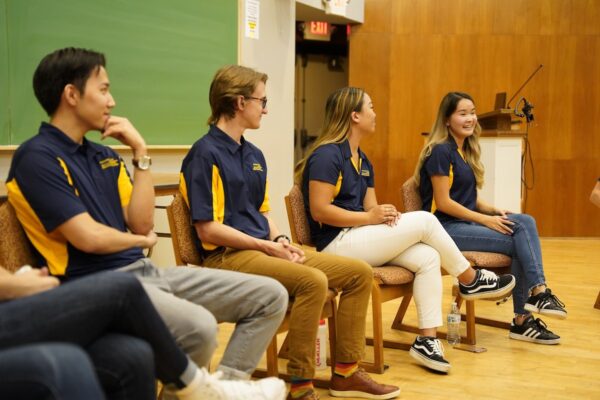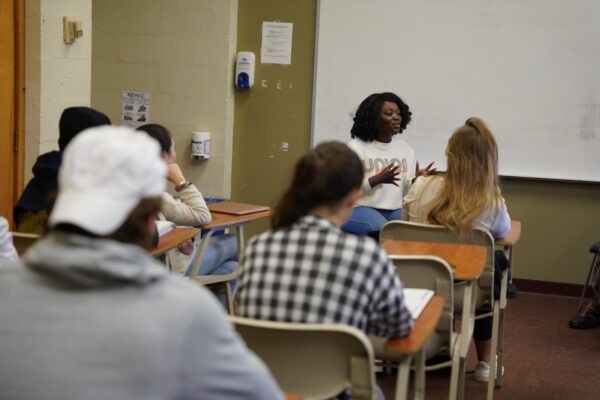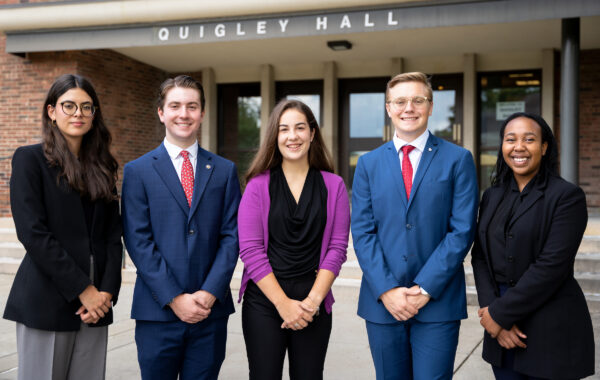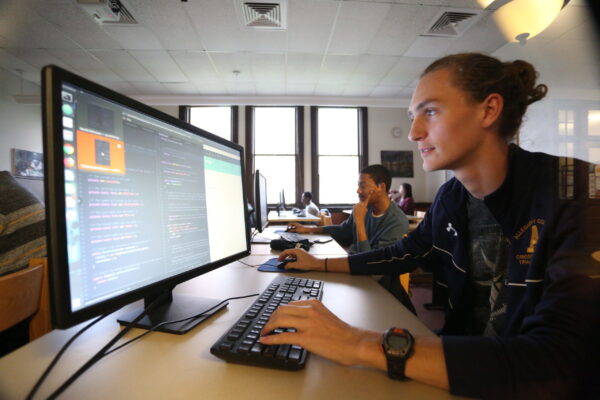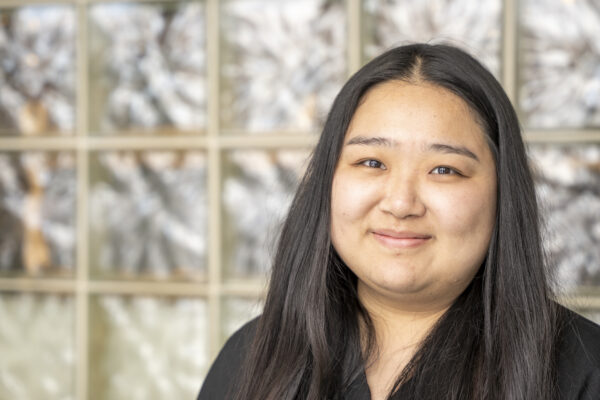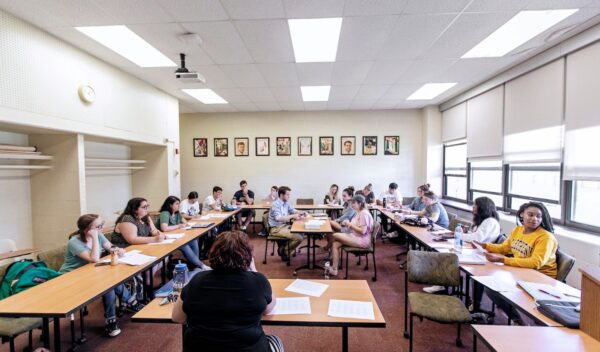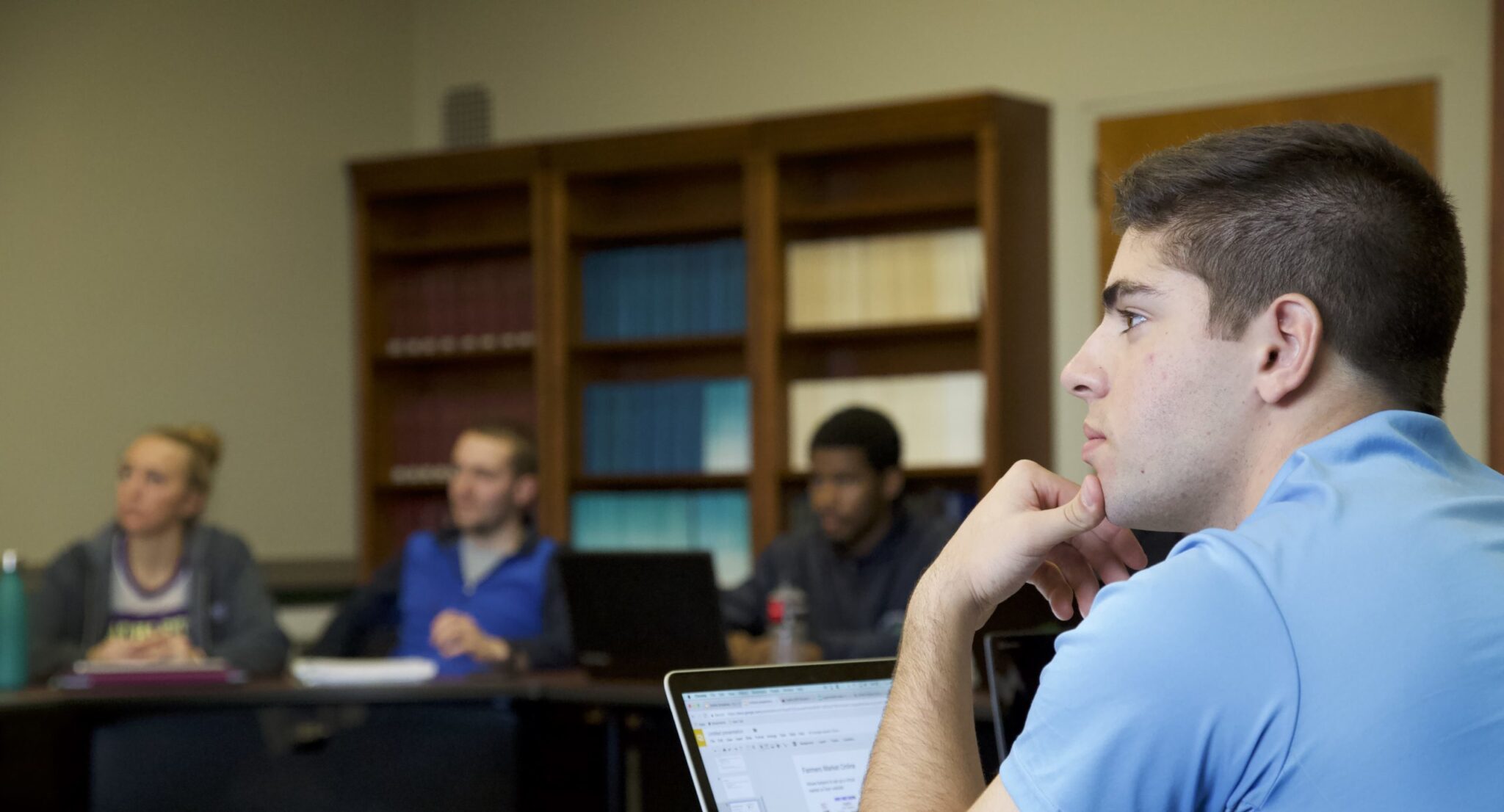
Business
Social and Behavioral Sciences
Why Major in Business at Allegheny College
Allegheny Business students gain a competitive advantage. We’ll equip you with analytical, problem-solving, and communication skills that you’ll apply in internships and other career-building opportunities. We’ll prepare you to lead as an in-demand professional — and difference-maker in society.
Unusual Combinations
Students often combine Business with:
Learn how we empower students for success by emphasizing real-world experience and providing a strong liberal arts foundation. Our graduates learn how they can use their financial insight and management expertise to serve humanity and leave a lasting legacy.
Division
- Social and Behavioral Sciences
Program Type
- Major
Number of Credits
52 for majorWhere Business Alumni Work Today
Relationship Manager
KeyBank
Kellie Lindstrom Liston ’17
Procurement Specialist
McKinsey & Company
Raymond Jozwiak ’15
Vice President, Organizational Excellence & Alignment
Indiana University Health
Andrea Kessler ’08
Vice Chairman
Bank of America
Bruce Thompson ’86
Vice President, Consumer Banking
PNC
Jennifer Daurora ’99
Global Strategy & Operations Leader
Deloitte
Jerry O’Dwyer ’88
Consultant
Chatham Financial
Terry Hartford Jr. ’11
CEO
PNC Financial Services
Bill Demchak ’84
Vice President, Customer Management Health
The Craneware Group
Naveed Ismail ’12
Senior Manager, Exempt Organization Tax Services
EY
Eileen Webb ’06
Financial Analyst
Motional
Jordan El-Sabeh ’14
The Economics/Business Department is always adapting to make sure that courses are relevant to the most modern economic and business applications in the real world. Additionally, the professors really get to know students and their interests in order to best help them achieve their goals.
Your Four-Year Journey
Year 1: Understanding
Students take Introduction to Microeconomics and Macroeconomics to build a foundation for understanding how businesses operate in the economy. They meet student Fellows of the Bruce R. Thompson Center for Business and Economics (CBE), faculty and staff, alumni and other visitors to campus, who will provide guidance and mentoring. Attending CBE events, such as the Lunchtime Learning series, will help students chose among courses of study and career paths.
Year 2: New Approaches
During their third year, students start to specialize, taking field courses in areas such as Accounting, Entrepreneurship, Finance, Human Resource Management, Marketing, Management. Besides their coursework, they have important side-jobs: applying their in-class experiences to understand and help decision-making by individuals and organizations, building their professional networks, and finding an internship for the following summer. By this time, students may be CBE Fellows, earned their Bloomberg Certification, or become members of the Wealth Management Club, Women in Business and Economics Club, or ODE, the national Economics Honors Society (open to both Business and Economics majors).
Year 3: Delving Deeper
During their third year, students start to specialize, taking field courses in areas such as Accounting, Entrepreneurship, Finance, Human Resource Management, Marketing, Management. Besides their coursework, they have important side-jobs: applying their in-class experiences to understand and help decision-making by individuals and organizations, building their professional networks, and finding an internship for the following summer. By this time, students may be CBE Fellows, earned their Bloomberg Certification, or become members of the Wealth Management Club, Women in Business and Economics Club, or ODE, the national Economics Honors Society (open to both Business and Economics majors).
Featured Courses
Year 4: The Comp
During their final year at Allegheny, students complete their Senior Seminars and Senior Projects, the capstone of their time in college. Most alumni report that their Senior Projects were the most challenging and satisfying assignment that they did at Allegheny. The Senior Project allows students to find a topic that deeply interests them and study it, under faculty guidance, for an entire school year. Students also continue to engage in CBE events, building their professional networks with visitors to campus, and planning for jobs, graduate schools, and other post-graduation experiences. The vast majority of students who engage actively in learning both in and outside of the classroom have accepted a job, graduate school position or have other solid plans upon graduation.
Faculty and Staff
Visiting Assistant Professor
Ph.D., University of Pittsburgh, 2023; M.Phil, The Chinese University of Hong Kong, 2017; B.S.Sc, The Chinese University of Hong Kong, 2015
Email: ylv@allegheny.edu
Phone: 814-332-3342
Adjunct Instructor
Doctor of Public Service, honoris causa, Clarion University; B.A., Allegheny College
Email: callison@allegheny.edu
Phone: 814-332-3360
Featured News
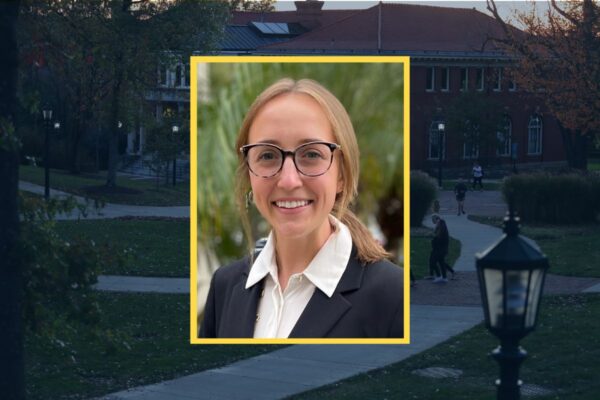
Allegheny College Graduate Finds Calling In Healthcare After Winning The Zingale Big Idea Competition
Liana Leja ’17 never imagined that her research skills and entrepreneurial drive at Allegheny College would culminate in a healthcare career — today she serves as a nurse practitioner at the Paley Orthopedic and Spine Institute.
Program Contact
Tomas Nonnenmacher
Patricia B. Tippie Endowed Professor in Economics and Chair


